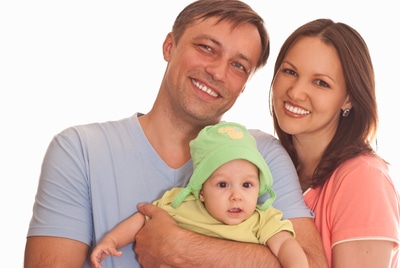[ad_1]
In general, I have two types of clients: women in their late 30’s who want to settle down and have kids, and women in their 40’s and 50’s who are divorced, jaded, frustrated, and confused about how to navigate the ever-changing dating space.
Surprisingly, a lot of women have never bothered to get the facts about their own fertility.
Both are near and dear to my heart, but I do hold special affection for helping women who thought that their dream of biological children was never to pass. Somewhat surprisingly, a lot of women have never bothered to get the facts about their own fertility, and largely work under the mindset that if she’s in great shape, her ovaries should be, too. Many women even factor this into their life plans. “Make partner by 40, then start dating, get married, and have kids.” They’re often shocked to find out that they waited just a little too long to pull it off.
A new article from The Atlantic sheds some light on the real statistical odds of getting pregnant, which is both hopeful and sobering:
“The data, imperfect as they are, suggest two conclusions. No. 1: fertility declines with age. No. 2, and much more relevant: the vast majority of women in their late 30s will be able to get pregnant on their own. The bottom line for women, in my view, is: plan to have your last child by the time you turn 40. Beyond that, you’re rolling the dice, though they may still come up in your favor.”
The actual numbers are surprisingly encouraging.
“With sex at least twice a week, 82 percent of 35-to-39-year-old women conceive within a year, compared with 86 percent of 27-to-34-year-olds. (The fertility of women in their late 20s and early 30s was almost identical–news in and of itself.)
Another study, released this March in Fertility and Sterility and led by Kenneth Rothman of Boston University, followed 2,820 Danish women as they tried to get pregnant. Among women having sex during their fertile times, 78 percent of 35-to-40-year-olds got pregnant within a year, compared with 84 percent of 20-to-34-year-olds.
A study headed by Anne Steiner, an associate professor at the University of North Carolina School of Medicine, the results of which were presented in June, found that among 38- and 39-year-olds who had been pregnant before, 80 percent of white women of normal weight got pregnant naturally within six months (although that percentage was lower among other races and among the overweight). “In our data, we’re not seeing huge drops until age 40,” she told me.
My wife and I got married right before she turned 39 and immediately started trying for kids. In one and a half years of trying, we had two chemical pregnancies, two miscarriages and one fibroid surgery. But at least we were fertile. We ended up having a girl and a boy naturally, without any fertility treatments. The girl was born when my wife was 41. The boy was born when she was nearly 43. We are really lucky.
This is not a normal recipe for success. Do as I say. Not as I did. Concludes the Atlantic article: “Fertility is relatively stable until the late 30s, with the inflection point somewhere around 38 or 39.”
If you are younger than 35 and reading this, please, don’t wait.
To sum up neatly, because this is a dating/relationship blog, if you want your own biological children, you are still in pretty good shape until your late 30’s. But if you want to start getting pregnant at 38 or 39, that means you have to be married. And if you want to be married, you have to start taking your love life seriously at a younger age. That means your early 30’s, not your mid 30’s. When you date in earnest in your early 30’s, it gives you time to date, make mistakes, learn, and fall in love by 35, so that you can marry at 36 and start trying for kids at 37.
Sadly, I almost never get clients who are younger than 35. If you are younger than 35 and reading this, please, don’t wait.
Your thoughts, as always, are appreciated below.
[ad_2]
www.evanmarckatz.com







